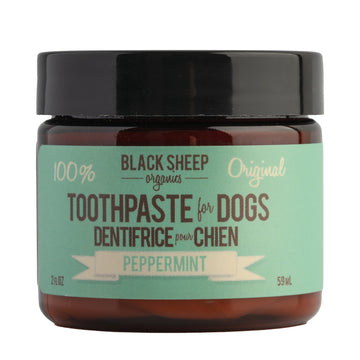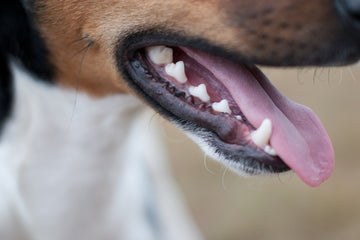The Importance of Brushing Your Dog's Teeth: A Guide to Canine Dental Health
Oct 19, 2023
Adoring our pets, we focus on exercise, diet, and love. Yet, something the pet owners might neglect is oral care, and it is literally vital for dogs. The American Veterinary Medical Association indicates that the lifespan of a dog is associated with its oral health. AVMA also points out that pets are likely to show signs of dental disease by the age of 3. Bad teeth might cause a lot more issues for your dog like having problem chewing and bad smell.
A regular at-home dental care for your furry friend seems quite important, and among those measures and methods, brushing your dog’s teeth regularly is the most easy and effective way. Let's discuss why brushing matters.
Preventing Dental Disease and Improve Oral Health
Dental problems are common in dogs, ranging from bad breath to serious issues like periodontal disease. Regular brushing is essential to prevent these problems by removing food particles, bacteria, and plaque from your dog's teeth. Neglecting dental care can lead to oral health issues. And some of them can become quite severe:
Lose of teeth
Losing teeth for adult dog is not something to just laugh off. It’s normally a sign of periodical diseases, which include dental ones. And the tooth lose might lead to further chewing issue and others. Brushing your dog's teeth regularly can significantly reduce the risk of tooth loss due to oral diseases.
Bad breath
Bad breath often signals dental issues. And bacterial is one of most common causes. Brushing eliminates the bacteria causing odors, keeping your dog's breath fresh and improving your interactions with them.
Discolored dog tooth
If you find your dog’s teeth starting to turn yellow or even brown, you might need to consider if you’re brushing your its teeth correctly. The common cause of yellow dog teeth is tartar (calculus stains). Using the right dog toothpaste can significantly reduce teeth tartar.
Overall Health Benefits
Dental issues in dogs don't just affect their mouths; they can impact their overall health. Bacteria from dental infections can enter the bloodstream, potentially causing heart, kidney, and respiratory problems. Regular brushing reduces the risk of these systemic health concerns, ensuring a healthier life for your pet. Other severe dental diseases might cause other dog tooth health problems:
- Having trouble chewing and swallowing
- Bad appetite or refuse to eat
- Pain in the mouth or teeth
Savings on Veterinary Bills
Prevention is cost-effective. Routine dental care (at least a yearly dental examination), including brushing, reduces the need for expensive dental procedures performed by your vet. By brushing your dog's teeth, you can save money on potential surgeries.
Enhanced Comfort and Quality of Life
Remember when you were a child and suffered from the pain of teeth decay? That happens to dogs too. Dental problems often come with discomfort and even pain. For dogs, chewing and eating is a big part of their life. Regular brushing prevents painful dental problems, ensuring your dog's comfort, good appetite, and a higher quality of life. Your pet deserves to be pain-free and happy.
Strengthening the Bond
After all the horror description of what health issues that dental disease can bring, we should know that brushing isn’t just about preventing bad things from happening. It is a good bonding activity for pets and their owners. Brushing your dog's teeth is a bonding experience that would increase trust. It allows you to spend quality time with your pet, building trust and a stronger relationship. Make brushing a positive experience with rewards and affection to show your love and care.











